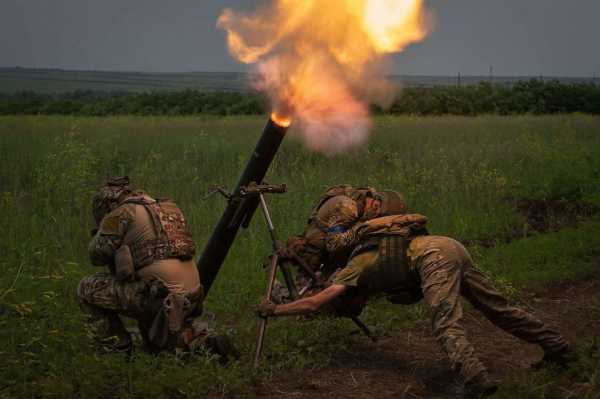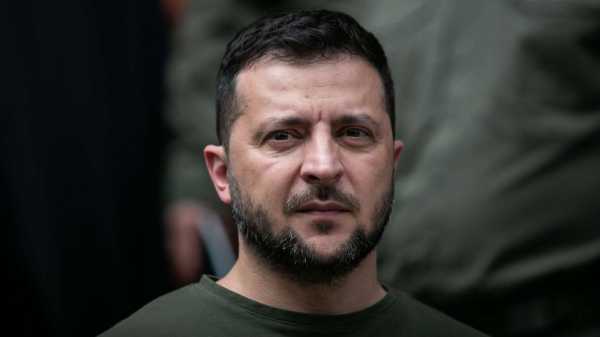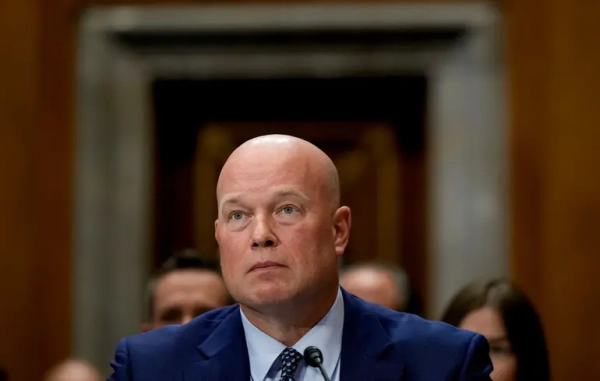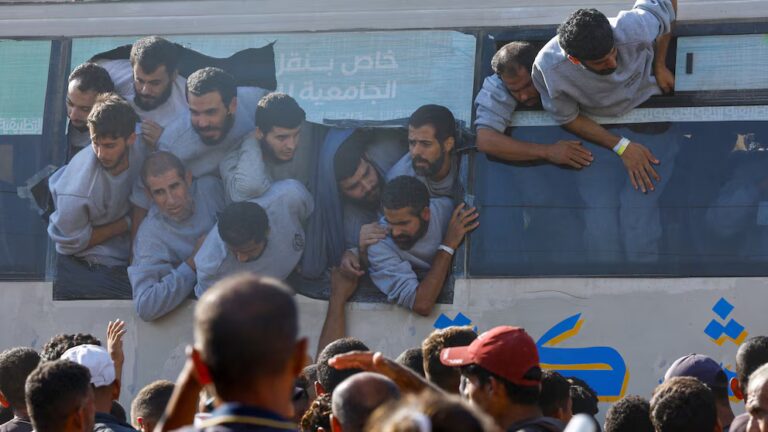Significant updates have taken place in the Russian-Ukrainian conflict over the last few weeks that could have major repercussions in the region, according to experts.
Retired Gen. Robert Abrams, an ABC News contributor who served as the commander of United States Forces-Korea, spoke with ABC News Live Monday evening to discuss the fallout of the failed rebellion by the Wagner Group, the ongoing Ukraine counteroffensive and the NATO summit in Lithuania.
ABC NEWS: Let's start with that claim that Russian President Vladimir Putin and the head of the Wagner militia forces, Yevgeny Prigozhin, met just days after Prigozhin forces seized a key Russian city. What could this meeting signal?
RETIRED GEN. ROBERT ABRAMS: Well, first, I'd be surprised if we actually see proof of life that Putin met with Prigozhin, and I think it's highly staged. And my personal assessment is that I doubt we'll see Prigozhin ever again publicly. I think he'll either be put in hiding or sent to prison or dealt with some other way, but I doubt we'll ever see him again.
ABC NEWS LIVE: Do you think he's alive?
ABRAMS: I personally don't think he is, and if he is, he's in a prison somewhere.

Ukrainian soldiers fire toward Russian position on the frontline in Zaporizhzhia region, Ukraine, June 24, 2023.Efrem Lukatsky/AP, FILE
ABC NEWS LIVE: The UK's Ministry of Defense says that Russia is losing an average of 400 soldiers a day, saying that half of those casualties could have been prevented with proper first aid. Stats like that, what do they tell you about how this war is going so far for Russia?
ABRAMS: Well, that's a startling statistic, and to have a 50% [rate of] what we call died of wounds of rate. Someone is injured on the battlefield and they expire before they can reach appropriate medical care, and they die of their wounds. A 50% died of wounds rate is astounding.
And it's a huge crush on the morale of fighting men and women everywhere. And that's why in our own military, many people have heard of it. We call it the golden hour rule, which is why we go to such great lengths to ensure that after point of injury, that point of injury after immediate first aid is applied, we get our soldiers to an initial aid station where advanced life-saving care can happen within an hour. And with that, we have a 98% survival rate.
So I'd have to say that this has got to be severely demoralizing to the Russian forces.
MORE: Russia-Ukraine live updates
ABC NEWS LIVE: And we just passed 500 days of war in Ukraine. Right now, Ukrainian troops are in the early stages of a counteroffensive. Give us a sense of how you think that counteroffensive is going and what success would look like for Ukraine at this point.
ABRAMS: Well, I think it's by President Zelensky's own account, it's not going as fast or as well as everyone had hoped. But we have to understand a few things. The Russians have been preparing these defenses and they understand this terrain. But for over a year, this is a well-entrenched enemy with countless minefields, obstacles, ditches, [and] tank obstacles with well-sighted artillery targets on top of them. And in the end, a pretty hardened enemy. So it's going to be difficult. It's going to be, as I've said and I've described before, a slugfest. But clearly, the momentum is with the Ukrainian armed forces.
ABC NEWS LIVE: One of the factors that started this war was the potential of Ukraine joining NATO. NATO is meeting this week with Finland joining in April. Sweden is on the path to joining. But President Biden says that Ukraine isn't ready to become a NATO member yet. So in your view, what does Ukraine still need to do in order to get support in order to join the alliance?

President of Ukraine, Volodymyr Zelensky takes part in a ceremony conducted by Patriarch Bartholomew I, during a visit to the Patriarchal Church of St. George, July 8, 2023, in Istanbul.DPA Images via Getty Images
ABRAMS: Well, I think it's a bit unclear, what exactly is going to be required for Ukraine to join NATO. I think there are a couple of significant happenings that have occurred in the last week. The first one is, is that what I've been informed is that the Ukrainians will no longer have to follow the Membership Action Plan process; that's been set aside for their application into NATO.
Many people forget that Ukraine was offered membership in NATO in 2008, but with no clear pathway. So they started the [Membership Action Plan] process in 2008. It was suspended in 2010 because Ukraine voted in a pro-Russian friendly president. So he laterally suspended their application process.
MORE: Blinken talks high-stakes NATO summit and path to membership for Sweden, Ukraine
I think the other significant thing that's demonstrating that we're on a clear pathway is the announcement today that Turkey is going to support Sweden's access to the North Atlantic Treaty Organization. That is significant because now the heads of states that were there in Vilnius for the summit can focus on establishing a clear pathway.
Sourse: abcnews.go.com






